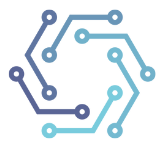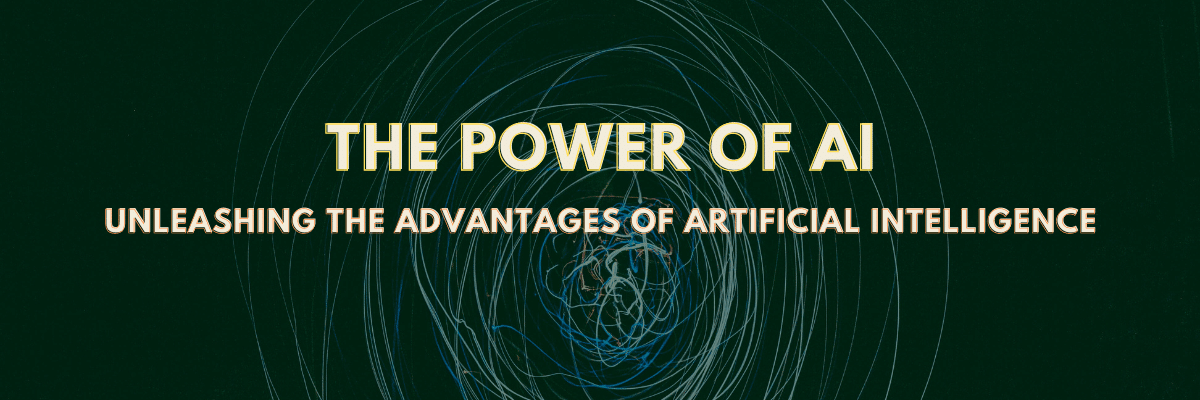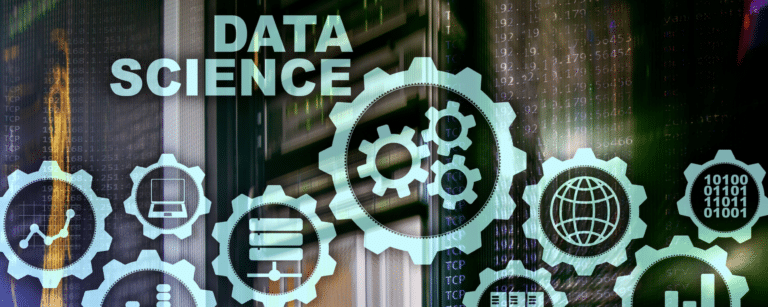The Power of AI: Unleashing the Advantages of Artificial Intelligence
The advantages of artificial intelligence are numerous and include increased efficiency, accuracy, and productivity, as well as improved customer experiences, better decision-making, and enhanced safety and security.
According to a study by PwC, AI has the potential to contribute up to $15.7 trillion to the global economy by 2030.
AI systems are designed to learn from data, identify patterns, and make predictions or decisions based on that information. With the ability to process vast amounts of data in a short amount of time, AI has the potential to revolutionize various industries, including healthcare, finance, transportation, and more.
But with this rapid advancement of machine intelligence comes the question of what impact it will have on humanity. Will AI be a boon or a bane for society? Can we strike a balance between the benefits and drawbacks of this technology?
These are important questions that we must explore as we move toward an AI-powered future. So let’s delve deeper into the world of AI and the potential impact it could have on humanity.
Table of Contents
- Advantages of Artificial Intelligence
- Real-World Applications and Use Cases of AI
- The Ethical Conundrum Surrounding AI
- Predictions and Possibilities for the Future of AI
- Addressing the Risks and Challenges of AI
- Final Thoughts
- Frequently Asked Questions
Advantages of Artificial Intelligence
Various types of Artificial Intelligence (AI) have revolutionized the way we live and work and have several advantages that have made them an essential part of many industries. Here are some of the advantages of artificial intelligence:
1. Improved efficiency and productivity in various industries:
One of the main advantages of artificial intelligence is its ability to process large amounts of data quickly and accurately. This helps businesses to increase productivity and efficiency, allowing them to make better decisions, reduce costs, and improve the quality of their products and services. For example, in manufacturing, AI-powered robots can perform repetitive tasks with precision and speed, reducing the need for human intervention and increasing production rates.
2. Opportunities for reducing human error in critical tasks:
AI technology has the potential to reduce human error in critical tasks. For instance, in the healthcare industry, AI algorithms can help doctors to diagnose diseases accurately by analyzing patient data and identifying patterns that might be missed by a human. Similarly, in the aviation industry, AI can assist pilots in making critical decisions by providing real-time information and alerts.
3. Potential for new innovations and discoveries:
AI has opened up new possibilities for innovation and discovery. By analyzing large amounts of data and identifying patterns, AI algorithms can help researchers to discover new insights and develop new technologies. For example, AI-powered drug discovery can speed up the process of identifying potential new drugs and treatments.
4. Improved decision-making capabilities in various fields:
AI algorithms can analyze complex data sets and identify patterns, providing businesses and governments with data-driven insights to make better decisions. For instance, in finance, AI can help banks to identify fraudulent transactions and minimize risk. Similarly, in agriculture, AI can help farmers to analyze weather patterns and soil data to make informed decisions about planting and harvesting crops.
5. Improved safety and security:
AI technology can be used to enhance safety and security in various industries. For example, in the transportation industry, AI-powered systems can monitor traffic patterns and predict accidents, helping to reduce the number of accidents on the road. In the cybersecurity industry, AI is helpful to detect and prevent cyber-attacks and keep sensitive information secure.
There are several advantages of artificial intelligence, ranging from improving efficiency and productivity to enhancing safety and security. As AI continues to evolve, its potential for innovation and discovery is limitless.
Real-World Applications and Use Cases of AI
Artificial Intelligence (AI) is no longer just a buzzword. It has become a game-changer in various industries, transforming the way we work, learn, and communicate. From healthcare to finance, education to entertainment, AI is revolutionizing the world in unprecedented ways.
Here are some real-world applications and use cases of AI:
1. Healthcare
AI is helping to make medical applications that improve healthcare outcomes and reduce costs. It helps in the diagnosis and treatment of diseases, such as cancer and Alzheimer’s, by analyzing medical data and images. AI-powered virtual assistants also assist patients in managing chronic conditions.
2. Finance
AI is transforming the finance industry by automating tasks, reducing fraud, and improving customer service. AI algorithms help to predict market trends and manage investments. Chatbots are also helpful in maintaining customer support and saving time and human resources.
3. Education
Educators are using AI to personalize learning experiences and improve student outcomes. Adaptive learning platforms use AI to analyze student performance and provide customized feedback. AI-powered chatbots also assist students with their queries and provide study material.
4. Entertainment
The entertainment industry uses AI to create realistic special effects and animations and to recommend personalized content to users based on their preferences and viewing history using AI algorithms.
5. Manufacturing
AI is transforming the manufacturing industry by automating processes, reducing errors, and improving quality control. Manufacturing companies utilize AI-powered robots for assembly line tasks, thereby reducing the need for human intervention.
6. Transportation
AI helps to improve transportation safety and efficiency. Self-driving cars use AI algorithms to navigate and avoid accidents. Additionally, AI-powered traffic management systems aid in reducing congestion and enhancing commute times.
These are just a few examples of how AI helps in various industries. With the rapid advancement of technology, we can anticipate a plethora of innovative applications of AI that have the potential to revolutionize the world we live in.
The Ethical Conundrum Surrounding AI
Artificial Intelligence (AI) presents a plethora of benefits and opportunities for innovation; however, it simultaneously raises significant ethical concerns.
As AI continues to develop and impact our lives in various ways, it’s crucial to consider its implications and the ethical principles that guide its use. Here are some ethical conundrums surrounding AI:
1. Bias and Discrimination
If biased data is used to train AI algorithms, it can result in discriminatory outcomes. For example, facial recognition technology has been found to have less accuracy for women and people of color, posing potential harm and injustice.
2. Privacy and Security
AI applications often require large amounts of personal data to operate, raising concerns about privacy and security. The use of AI in surveillance and monitoring systems also poses a threat to individual privacy rights.
3. Accountability and Transparency
As AI systems become more than complex machines, it becomes challenging to understand how they operate and make decisions. This lack of transparency raises concerns about accountability and responsibility, particularly in cases of harm caused by AI systems.
4. Employment and Workforce Displacement
The rise of AI automation may lead to significant job loss and displacement, particularly in sectors of repetitive jobs that rely heavily on routine and repetitive tasks. This raises concerns about the impact of AI on the workforce and the need for retraining and reskilling programs.
5. Autonomy and Responsibility
As AI systems become more autonomous, it becomes difficult to determine who is responsible for their actions. This raises questions about accountability and liability in cases where AI systems cause harm or make decisions that have significant consequences for human beings.
6. Military and Weaponization
The use of AI in military applications raises concerns about the potential for autonomous weapons that can make decisions without human intervention. This poses a threat to international law and raises ethical concerns about the use of lethal force.
Predictions and Possibilities for the Future of AI
The future of Artificial Intelligence (AI) is filled with limitless possibilities, with experts predicting that AI will continue to transform various industries and have a significant impact on our lives. Here are some predictions and possibilities for the future of AI:
1. Increased Personalization
AI will continue to drive personalized experiences for individuals in various industries, including healthcare, education, and entertainment. AI algorithms will analyze vast amounts of data to understand individual preferences and provide customized recommendations.
2. Autonomous Machines
We can expect to see the development of more autonomous machines, including self-driving cars, drones, and robots. These machines will become increasingly sophisticated, making them capable of complex tasks and decision-making beyond human limitations.
3. Improved Healthcare
AI will have a significant impact on the healthcare industry, from drug discovery to disease diagnosis and treatment. AI algorithms will analyze vast amounts of medical data to improve patient outcomes and reduce healthcare costs.
4. Improved Cybersecurity
As the threat of cyber attacks increases, AI will be used to improve cybersecurity by detecting and preventing attacks in real-time. AI algorithms will also be used to identify vulnerabilities and provide recommendations for improving security.
5. Augmented and Virtual Reality
AI will enhance augmented and virtual reality experiences, making them more immersive and interactive. AI algorithms will analyze user behavior to provide personalized experiences, enhancing the overall user experience.
6. Increased Automation
AI will continue to automate routine and repetitive tasks unlike humans, freeing up time for more creative and strategic work. This will impact various industries, from manufacturing to finance and education.
7. Quantum Computing
The development of quantum computing will enable AI algorithms to process vast amounts of data at unprecedented speeds. This will lead to significant advancements in data science in various fields, including drug discovery and climate modeling.
Addressing the Risks and Challenges of AI

With the numerous advantages of artificial intelligence come several risks and challenges that need to be considered. Here are some of the main disadvantages of artificial intelligence:
1. Job loss and economic disruption due to automation:
One of the primary concerns surrounding AI is the potential for job loss and economic disruption due to automation. As AI technology becomes more advanced, it has the potential to automate many tasks that are currently performed by humans, leading to job displacement and unemployment in some industries. This could have a significant impact on the economy and could exacerbate existing inequalities.
2. Ethical and moral concerns surrounding the use of AI in decision-making:
AI algorithms are increasingly being used to make decisions in various fields, from finance to healthcare. However, there are ethical and moral concerns about the use of AI in decision-making. For example, AI algorithms may not take into account the full range of factors that humans consider when making decisions, such as empathy and compassion. This could lead to decisions that are unethical or morally questionable.
3. The possibility of misuse or abuse of AI technology:
There is a risk that AI technology could be misused or abused for nefarious purposes, such as hacking, cyberattacks, or surveillance. This could have serious implications for privacy, security, and human rights.
4. Dependence on AI systems and the potential for failures:
As society becomes more reliant on AI systems, there is a risk of becoming too dependent on technology. This could have negative consequences if the technology fails or malfunctions, such as in the case of a power outage or cyberattack. Additionally, AI systems are only as good as the data they are trained on, which could lead to biased or inaccurate outcomes.
5. Risks of amplifying human biases and inequalities:
AI algorithms are only as unbiased as the data they are trained on. If the data is biased, the algorithms will be biased as well, leading to unfair outcomes. This could perpetuate existing inequalities and biases in society, such as racial or gender biases. Additionally, there is a risk that AI algorithms could amplify human biases, rather than mitigate them.
Final Thoughts
The applications and advantages of Artificial Intelligence (AI) are endless, and the technology is poised to transform various industries and have a significant impact on our lives. According to a report by Grand View Research, the global AI market size is expected to reach $390.9 billion by 2025, growing at a CAGR of 46.2% from 2020 to 2025.
With the development of more sophisticated AI algorithms, we can expect to see more personalized experiences, autonomous machines, improved healthcare, enhanced cybersecurity, increased automation, and advancements in quantum computing. However, as we continue to embrace AI, it’s crucial to consider its ethical implications and ensure that its use aligns with our values and principles.
Frequently Asked Questions
What is Artificial Intelligence?
Artificial Intelligence, or AI, is a branch of computer science that aims to create intelligent machines that can mimic human cognitive abilities such as reasoning, learning, problem-solving, and decision-making.
How powerful is AI?
AI can be very powerful, depending on the specific application and the complexity of the algorithms involved. AI algorithms can process vast amounts of data, learn from patterns and feedback, and automate routine tasks. However, AI is not sentient and cannot think or reason like a human being, and its capabilities are limited to the tasks it is designed to perform.
What are the advantages of artificial intelligence?
AI can increase efficiency and accuracy, reduce costs, and improve decision-making. It can also perform tasks that are dangerous or impossible for humans and can provide new insights into complex problems.
What are the different types of AI?
There are three types of AI: narrow or weak AI, general or strong AI, and super AI. Narrow or weak AI is designed to perform a specific task, such as facial recognition or speech recognition. General or strong AI is designed to perform any intellectual task that a full human brain can do, while super AI is hypothetical intelligence that surpasses human intelligence.
What are some real-world applications of AI?
AI has numerous real-world applications, including speech recognition, image recognition, natural language processing, recommendation systems, fraud detection, and predictive analytics.
What are the risks of AI?
AI can lead to job displacement, privacy concerns, bias, and ethical issues. There is also the risk that AI could be used for malicious purposes, such as cyber-attacks or autonomous weapons.
Will AI steal our jobs?
AI may replace human resources in certain jobs, but it is also expected to create new jobs and enhance productivity in various industries. The impact of AI on the job market remains to be seen, but it is essential for individuals to upskill and adapt to the changing job landscape.
Can artificial intelligence compete with human intelligence?
While artificial intelligence (AI) can outperform humans in certain tasks, such as complex calculations and data analysis, it cannot compete with human intelligence in terms of creativity, emotion, intuition, and common sense. AI algorithms are programmed and trained to perform specific tasks, while human intelligence is more versatile and adaptable to different situations.
What are the current capabilities of artificial intelligence?
Current capabilities of Artificial Intelligence (AI) include natural language processing, speech recognition, image and video recognition, machine learning, and deep learning. AI is being used in various industries, including healthcare, finance, manufacturing, and entertainment, to automate tasks, analyze data, and provide personalized experiences.
What is deep learning with AI?
Deep Learning is a subset of Artificial Intelligence that involves training artificial neural networks with multiple layers to learn and recognize patterns in data. It is used for tasks such as image and speech recognition, natural language processing, and predictive analytics.
What is the future of AI?
The future of AI is likely to involve further advances in machine learning, deep learning, natural language processing, and computer vision. It will also involve increased integration of AI with other technologies such as robotics, IoT, and blockchain. However, the ethical and societal implications of AI will need to be carefully considered and managed.








